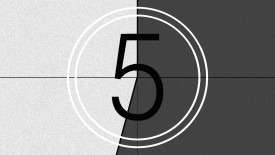Hard-money lenders do not rely on the creditworthiness of the borrower. Instead, they look to the value of the property. The lender wants to make sure that if the borrower defaults, there will be sufficient equity in the property over and above the amount of the loan. Accordingly, you will not get a hard money loan of 80 or 90 percent loan to value; typically, they will range from 50 to 70 percent loan to value. 1
I receive calls everyday from investors requesting a Hard Money loan to finance a real estate deal through Glassridge and more often than not, unfortunately I have to tell them that the answer is no. Those investors with little or no experience tend to make the same mistakes, and in this countdown to the number one reason, I will explain.
Table Of Contents
Let The Countdown Begin
5. Not Being Realistic On How Much Property Is Worth
This occurs most often with refinancing. It is wise, if you are looking to get a loan on your real estate, to spend a few minutes researching to see what the value really is. There are plenty of resources out there to do so. If every house within five blocks of your home is selling for less than what you think the property is worth, more often than not, the speculated worth will be wrong and this will result in non-qualification.
4. Buying an REO Or Short Sale And Making An “All Cash” Offer
Nine times out of ten, traditional banks (who sell almost all short sales) award a purchase contract not to the buyer with the most money, but to the buyer that can close the deal the fastest. So if a borrower claims they are making an “all cash” offer but they still need to borrow a portion of the money, the bank will stop the sale and immediately move to the next person in line that actually has the funds to close.
3. Trying To Buy At An Auction Or At The Courthouse
Auctions actually require “all cash” offers and almost never allow for financing. If you are buying at the courthouse steps, a private lender will not be able to help you. The reason being: the home will not be able to qualify for title insurance until the trustee’s deed is delivered. (usually 1-3 weeks after the house is purchased)
2. The Purchase Price And Loan For The Property Is Too Small
In places like the San Francisco Bay Area and New York City, this is not seen as a major issue but private lenders do not typically like to make loans for less than $100,000. If you are looking at properties for sale under $100,000, this will prove to be difficult, if not impossible, depending on the area.
And the number one reason…
1. No Down Payment Or Too Small Of A Down Payment
Most of the time, private lenders will require a minimum of 25 – 35% down. If you are indeed seeking a no money down loan or very little money down, in reality, the best option is to go is to with friends/family/business associates that are willing to co-invest with you or to the banks. Traditional banks have a product from the Federal Housing Authority (FHA) where you can buy a house for as little as 3% down. Keep in mind though, these loans are notoriously difficult to qualify for and can only be used for personal residents and not for investments.
Notes:
- Hard Money Loans: The Hard Truth, Benny Kass. ↩


Leave a Reply